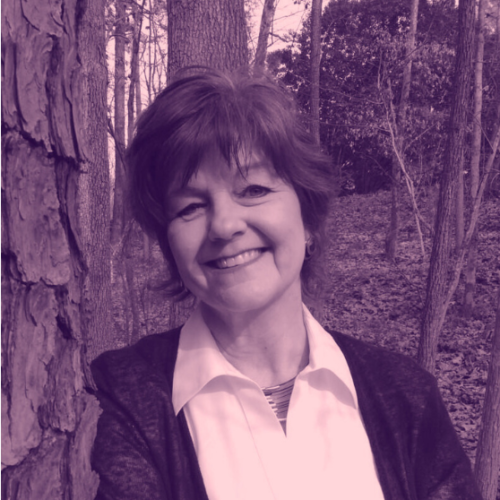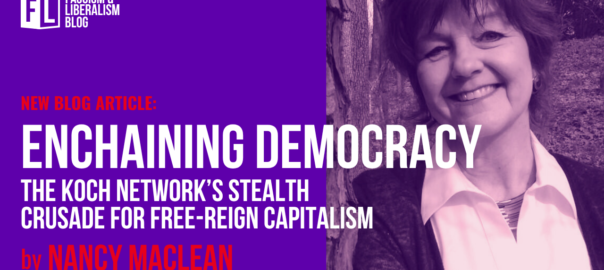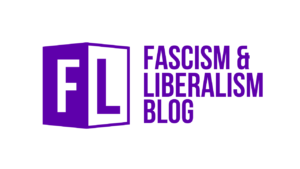Enchaining Democracy: The Koch Network’s Stealth Crusade for Free-Reign Capitalism
Nancy MacLean, edited by Solveig Degen
21.08.2025
In the past decade, it has become ever more obvious that US politics are in profound crisis. A government that once claimed to be of, by, and for the people has been captured by oligarchs and corporations whose agendas are driving unmatched inequality and planetary crisis. With the first and now second presidency of Donald J. Trump, even elementary norms of civic decency were imperiled. Anyone who follows US politics knows this – however, what you may be struggling to figure out is how things have come this far and what the rise of the US Radical Right means for the wider world.
The full-fledged attack on democracy we are witnessing at the moment has been fed by many streams, of course. They include long-growing movement conservatism, the Religious Right, as well as the white Supremacist Right that has resurfaced with a vengeance of late. All of these are important, and have yielded votes to effect radical policy change, but, in this blog piece, I want to discuss another, often overlooked piece of the puzzle: the billionaire-funded libertarian right.
Over the past decades, Charles Koch, CEO of the fossil heavy-weight Koch Industries and 22nd richest man in the world and his late brother David have assembled a vast network of over 600 like-minded wealthy donors into what is now the largest private political network in the world. It spans research institutes, think tanks, and advocacy organizations, and far exceeds the size and sophistication of any national party. This network has become a powerful delivery vehicle for its libertarian and increasingly authoritarian agenda. We’ve seen its fingerprints in the Brexit campaign, in billionaire support for fascist parties in Europe, in the growing collaboration of far-right parties and neoliberal think tanks, and in the ascent of the Trump administration itself.
In this piece, however, I do not want to talk about the scale and audacity of the Koch network’s bid for power, but closer examine the underlying ideology and ideas this network has weaponized to climb from utter marginality to breathtaking power. Why do I think understanding these ideas and their origin matter so much? Because there is an unmarked hazard in our current situation in how the noisiest threats are getting the most attention. Donald Trump – whom I’ve come to think of as the Distractor in Chief – draws nearly all media attention, but not enough attention is paid to the plan which is moving along apace out of the spotlight: In the 30 states now dominated by the Republican party, the Koch network – which has bent the Republican party to its purposes in federal departments, agencies, and in the courts – aims to permanently rewrite the rules of US society. This is important to understand: The dismantling of the US democratic system is not led by a president with a limited attention span and bad temper, but by a highly strategic network that is archly determined, breathtakingly well-funded, and acting globally.
Forget Chicago: The Crucible of Buchanan‘s Virginia School
In recent years, much ink has been spent on exposing the rise, ideas, and machinations of the so-called Chicago School of Economics. People such as Naomi Klein with her influential book The Shock Doctrine, Philip Mirowski in his book Never Let a Serious Crisis Go to Waste, or Quinn Slobodian’s Globalists and Hayek’s Bastards provide detailed and insightful accounts of how the ideas of the Chicago School have gained traction in policymaking and slowly reshaped global economic policy. However, through my research on the Atlas Network in Democracy in Chains and my archival work at George Mason University, I learned that it was another – so far mostly unacknowledged – strand of economic thinking that has had far more influence on the Koch network’s development and political strategy. I learned that it was the Nobel laureate and public choice economist James M. Buchanan whose work supplied the strategic path that the Koch network pursues.
Buchanan, who grew up in Tennessee, completed his PhD at the Chicago School of Economics and was president of the Mont Pelerin Society. In 1986, he won the Nobel Prize for Economics for having pioneered a new way of thinking called public choice economics. Public choice economics also became influential in political science and law – and, as I learned through my research, among activists and elected officials on the Right. What made Buchanan’s work new was – in his phrase – that he developed an economic analysis of politics. He applied Chicago-style and Austrian-style libertarian economic assumptions to political actors to argue that they should only be understood as individuals rationally seeking their personal self-interest – not the common good as they claimed.
With public choice economics, Buchanan turned new attention to what he liked to call ‘the rules of the game of politics’: to the taxing and spending incentives of the political process, and to how altering the rules of the process might yield different outcomes. That theoretical premise led Buchanan to a new explanation of deficits because he made sense of why the governments would overspend in times of prosperity, not just depression or recession as Keynesian economics would predict. As a thinker who specialized in public finance and who identified with the political Right in the South, often criticizing “Eastern elites”, Buchanan made it his mission to find ways to reduce taxes and shrink the expanding public sector, then in its heyday of expansion.
In this way, his ideas were closely aligned with Milton Friedman and the liberal economic Chicago-school agenda, but Buchanan’s subset school – the Virginia School of Political Economy – was always distinctive and tendentious from Chicago-school ideas: Buchanan himself said, looking back, that his goal was ‘to tear down’ the very idea of ‘the public interest’ and economics for the ‘common good’ as Chicago followers proclaimed. For libertarians like Buchanan, there is no common good. Any such notion of shared purpose of democratic governments violates the individual liberty of the minority. The minority he was concerned with was that of wealthy taxpayers who do not share the majority’s view of the public interest. And government, Buchanan and his colleagues argued, all but steals their property, if it taxes them for purposes they do not share.
Indeed, even in his scholarly work he made this point very agitationally. In what he viewed as his master work, The Limits of Liberty, written during the 1970s crime panic, Buchanan compared government ‘coercion’ of the unwilling taxpayer to ‘the thug who steals his wallet in Central Park’. He spoke of net tax recipients as ‘parasites on the productive’; he warned of ‘predators and prey’. His very vocabulary made fellow citizens appear as menaces, not even truly human. It is a vocabulary that is disinhibiting, one that licenses hostility. And it, too, is rife on the Right today and mirrored in claims such as made by Elon Musk that “the fundamental weakness of Western civilization is empathy”.
But Buchanan did not stop with developing theory that he hoped would undermine the legitimacy of the modern welfare and regulatory state. Believing fiercely in the rightness of his cause, he moved in the 1970s from scholarship to organizing to apply that theory, urging right-wing donors to help build a ‘counterintelligentsia’. How? By creating what he called ‘a gravy train’ to bring men into the libertarian fold and train them for intellectual battle with Keynesians and social justice advocates.
Buchanan taught Charles Koch that for capitalism to thrive, democracy must be enchained: not overthrown in a coup, but rather quietly rigged so that it can no longer provide what citizens expect of it – from workers’ rights and retirement benefits to protection from discrimination and environmental destruction. Beginning in the early 1970s, Buchanan and Charles Koch allied to transform the model of government that Western capitalist nations built up over the twentieth century seeking a way to make the US – and the world, in fact – conform to an arch vision of economic liberty, a kind of free-reign capitalism beyond the reach of voters and their governments. As Charles Koch once put it “I want to build the kind of force that propelled Columbus to his discoveries”.
Libertarian Model Constitutions and Regulatory Test-Labs
As Buchanan started organizing, he also shifted from diagnosis to prescription; he began developing the field he called constitutional economics. In the belief that all existing constitutions were ‘failures’ as far as protecting the wealthy minority from the grabbing majority was concerned, Buchanan set out to design a new legal regime – one that would protect capitalists from government. He took pride in being an ‘academic entrepreneur’, and his venture into constitutional economics showed his acute sense of timing: For he turned to constitutional design in the mid-1970s just as the military junta of General Augusto Pinochet in Chile was facing intense international pressure to return to representative government.
Pinochet’s regime wanted to lock in the radical transformation of the political economy it had forced upon the country, including the privatization of social security and education. In 1980, the dictatorship’s corporate allies invited Buchanan to Santiago to try out his ideas for how to devise a constitution that would protect capitalism from government; the result, Chile’s so-called ‘Constitution of Liberty’ – ratified in a rigged plebiscite – is still achieving that purpose: In 2019, 20 people lost their lives in the massive struggle for a new constitution that might again be responsive to the will of the vast majority.
Sadly, the Chilean experience is not a detour of purely historical interest, but rather, a case of past as prologue. That kind of constitution – a constitution not of checks and balances, but of locks and bolts – has been coming to the United States for several years and is now on the verge of national government take-over with the second presidency of Donald Trump. The first moves in these directions were already visible in 2010, when in North Carolina a radicalized Republican Party, dominated by Koch-backed Tea Party figures, won majorities in both houses of the state legislature and introduced the same prescriptions Buchanan advocated for. What unfolded in North Carolina was a stunning barrage of radical rules changes on the Chilean model: These included extreme gerrymandering, union suppression, attacks on public education, rejection of Medicaid expansion, and environmental regulation rollbacks. “Getting dramatic economic change at the federal level is very difficult”, Tim Phillips, President of the Koch organizing enterprise Americans for Prosperity, later explained “[so] a few years ago, the idea we had was to create model states. North Carolina was a great opportunity to do that”.
To appreciate the nature of this ‘shock and awe’ strategy of libertarian warfare, it helps to know that Buchanan had long urged his teammates on the Right to stop focusing on who rules and study the rules. He explained to like thinkers and those who funded them – including Charles Koch – that if you did not like the outcome of public policy over a long period of time, you must focus laser-like on systematically changing the rules of governance.
Activists mobilising against such policy changes have long focused all their efforts on demonstrating to elected Republican representatives the massive impact these reforms have on the welfare of the general population and especially the poorer segments of society, often believing that showcasing the detrimental effects they have on people would sway officials to revert them. However, what these activists often do not realise are that the men pushing this agenda are not misinformed about the likely consequences – they fully understand that the policies they introduce inflict harm on many of their fellow citizens, but, it is crucial to realise that they truly believe that their endgame is worth that price. To wit: the libertarian morality deems it better to have people die from lack of health care than receive it from government, from taxes paid by others. This, really, is what they mean, ultimately, by personal responsibility: you should be on your own, for all your needs. And if you fail to anticipate and save for those future needs, you deserve your fate. Not only that your suffering will have instructive value for others in the new world the libertarians are ushering into being: watching what happens to you, as government no longer helps you, will teach others that they must save. What they seek, in short, is a world in which we are kept from using government to help ourselves and one another: by ironclad new rules.
The Koch Network’s Promotion of Libertarian Transformation on Every Continent
The Koch project, as a project of social and political transformation, is so radically new in human history – in its scope, audacity, and strategic sophistication – that the social sciences lack even a concept for it. The Koch donor network funds an infrastructure of literally hundreds of organizations – all working to radically alter government and society in a quest to bring unfettered free-reign capitalism into being. Just as Marxists know a workers’ revolution will have to be international to succeed, so have the members of the Koch network reached the same conclusion: Their vehicle is the so-called Atlas Network, which at this writing claims over 400 affiliates in 95 countries, their operations partly funded by Koch and allied capitalists, with heavy support from fossil fuel-based fortunes.
In fact, Atlas can now claim to be the largest think tank network in the world. Yet, the organization is all but unknown to most scholars and trackers of neo-liberalism. Atlas presents itself to the global public as a non-profit body “strengthening the worldwide freedom movement”. Its mission, according to its website, is to “[increase] global prosperity by strengthening a network of independent partner organizations that promote individual freedom and are committed to identifying and removing barriers to human flourishing”.
As in the case of the Koch network’s operations in the US, the rhetoric of freedom packages a cause which does more than simply compete in the marketplace of ideas to win converts. Even from the very limited investigations undertaken to date, numerous Atlas affiliates have been found to sway public opinion with disinformation, operate in secrecy, violate tax laws on charitable endeavors, and more. Most concerning here is the key role several of its affiliates have played in the rise of right-wing populism, the topic with which I will end.
Nowhere is the application of the whatever-it-takes-to-win ethos of Atlas more chilling than in Central Europe, the original spawning ground of Nazism. Some Atlas participants are building cosy relationships with neo-Nazi parties in Germany, Austria and other EU countries. As the European economic historian Janek Wasserman explains “the transnational emergence of the ‘New Right’ demonstrates an alarming degree of interaction between rightists and “Austrian” supporters of free markets and economic liberty”. Where one side brings numbers and street energy, the other brings wealthy donors, highly placed political and intellectual allies, and a coherent policy agenda.
In Austria itself, two organizations that got most of their seed money from the Koch Foundation and the Atlas Network, the Friedrich Hayek Institute and the Austrian Economics Center, saw some of their leading members join the Freedom Party of Austria (FPÖ). A right-wing populist party par excellence, it is anti-immigrant, ethnonationalist, and hostile to the European Union. In other words, a seed bed of incipient neo-Nazim. The Director of the Friedrich Hayek Institute, Barbara Kolm, has served the FPÖ as an economic advisor, denouncing the EU and trumpeting the US Tea Party, all in the name of Hayek and Austrians. But, then, she succeeded in bringing the FPÖ to embrace the economic agenda of the arch-capitalist donor network: including deregulation, privatization, decreased corporate and income taxes, and decreased social services.
To conclude, the Koch network’s project is unprecedented in scale and ambition. It is a global, strategic, and well-funded assault on democracy, aiming to chain popular power in the name of capitalist freedom.
To understand our crisis – and act on it – we must unmask the ideas behind this project, name the networks that sustain it, and build coalitions that defend our existing democratic systems, as well as promote the economic strategies that are needed to sustain them: anti-austerity measures, stronger redistribution mechanisms, resilient social systems, and effective environmental protection guidelines. The stakes are nothing less than our collective ability to decide our future and prevent a reign of billionaires who see empathy as humanity’s biggest weakness.

Nancy K. MacLean is an American historian. She is the William H. Chafe Professor of History and Public Policy at Duke University. Her research focuses on race, gender, labor history and social movements in 20th-century U.S. history.
Further Reading
- MacLean, Nancy. 2017. Democracy in Chains: The Deep History of the Radical Right’s Stealth Plan for America. London, UK: Penguin Books.
- Slobodian, Quinn. 2025. Hayek’s Bastards: Race, Gold, IQ, and the Capitalism of the Far Right. Brooklyn, NY: Zone Books.
Wasserman, Janek. 2020. The Marginal Revolutionaries: How Austrian Economists Fought the War of Ideas. New Haven: Yale University Press.

